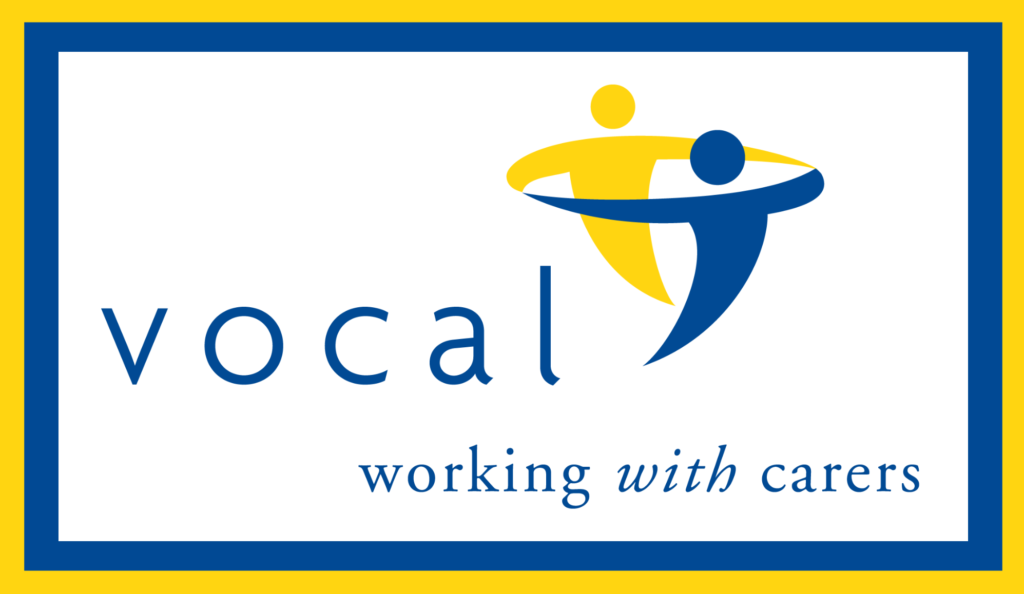
Who is an Unpaid Carer?
An unpaid carer is anyone supporting a family member, partner, relative or friend, of any age, with help to manage a long-term condition, disability, physical or mental health condition or addiction.
This could be someone caring for their mum who has dementia, their child who has additional support needs or their partner who has cancer.
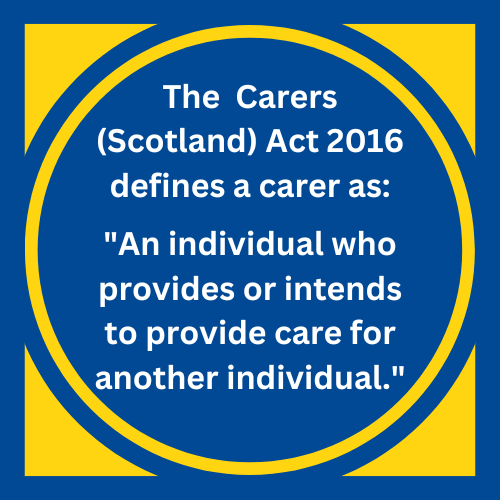
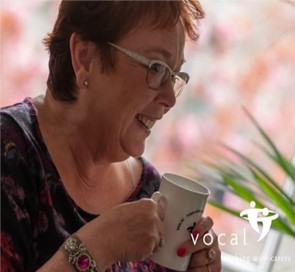
Unpaid Carers
- Don’t have to live with the person they care for.
- Can be providing lots of different types of support such as help with shopping, finances, domestic tasks, emotional support, personal care, or supporting someone following a stay in hospital.
- Can continue to provide care for someone when they enter a Care Home or receive support from professional services.
- Can be in employment and an unpaid carer.
- Have legal rights
Are You an Unpaid Carer?
Please see our VOCAL (Voice of Carers Across Lothian) – Support for Carers webpage for more information.
How to Identify an Unpaid Carer
3 in 5 people will have caring responsibilities at some point in their lives. Most of us will have at least some experience of caring whether that’s as a carer or knowing someone who is.
Many people in caring roles do not recognise themselves as a carer. It is often the case that carers will see themselves as acting in the role defined by their relationship with the person they are caring for.
Self-identification can be challenging as many carers see their relationship with the person they care for as one of being a parent, child, neighbour, friend or partner and don’t recognise ‘carer’ as a term they would identify with.
Healthcare professionals are well placed to help in the identification of carers. Carers can often be recognised as the person:
- Visiting the resident/patient regularly
- Bringing food to visits
- Who is talked about most by the resident/patient
- Supporting them to attend appointments
- Picking up prescriptions
Even if a carer does not see themselves this way, and does not want to be called a carer, they can still access vital help, advice, and information.
Identifying as a carer can be a long and emotional journey, and it can be even more difficult for carers to then recognise they need support. Professionals can help identify and refer unpaid carers as carers often don’t feel seen.
Working with Carers
Carers have a unique role in the life of the person they care for. They have valuable knowledge which can contribute to the care and treatment of the person they care for.
There are many ways you can include a carer in health care support, you can ask:
- How are you getting on?
- Do you have enough information or any questions?
- What would help you?
- What times work best for appointments?
Working with carers can bring many mutual benefits including:
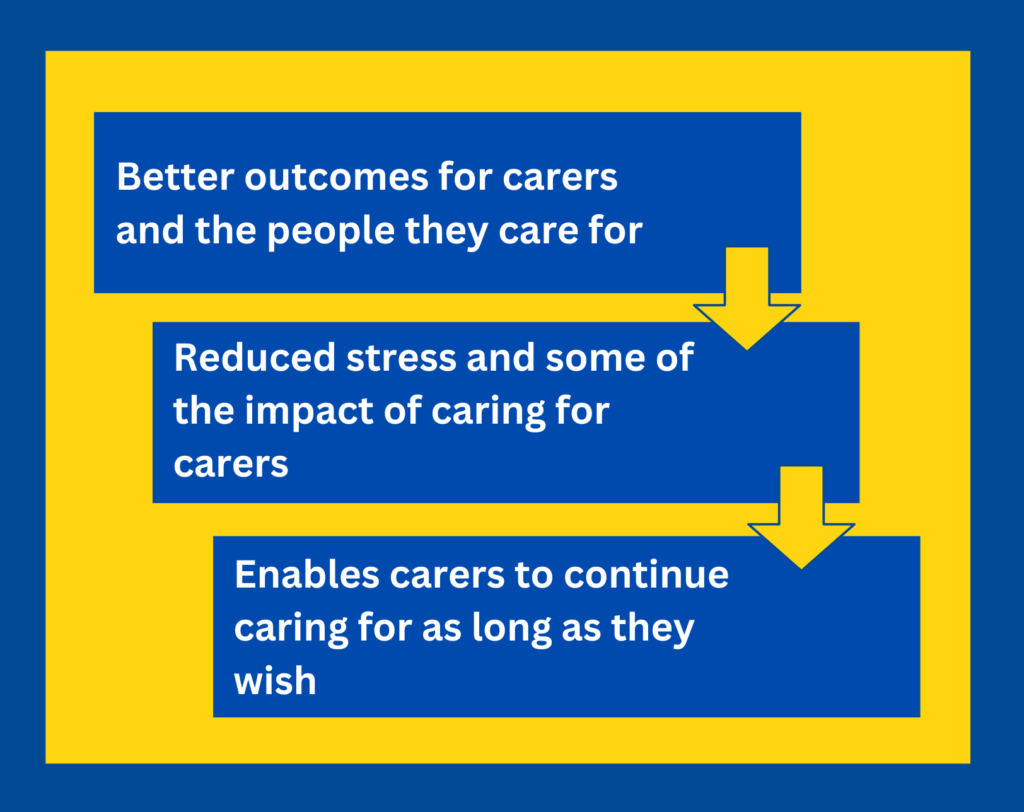
By involving carers in planning and decisions about the person they care for, everyone can benefit. Every conversation you have with a carer can make a difference.
Resources
VOCAL provides a wealth of useful information from practical help to emotional and supportive support.
Please note there are more resources available on the VOCAL website
Loading …
Education – Free Training for Professionals
VOCAL works in partnership with professionals from all backgrounds to support unpaid carers in Edinburgh and Midlothian.
If you would like someone from VOCAL to visit you to talk about carer identification, carer issues, carer support, and partnership with VOCAL, please contact thinkcarer@vocal.org.uk
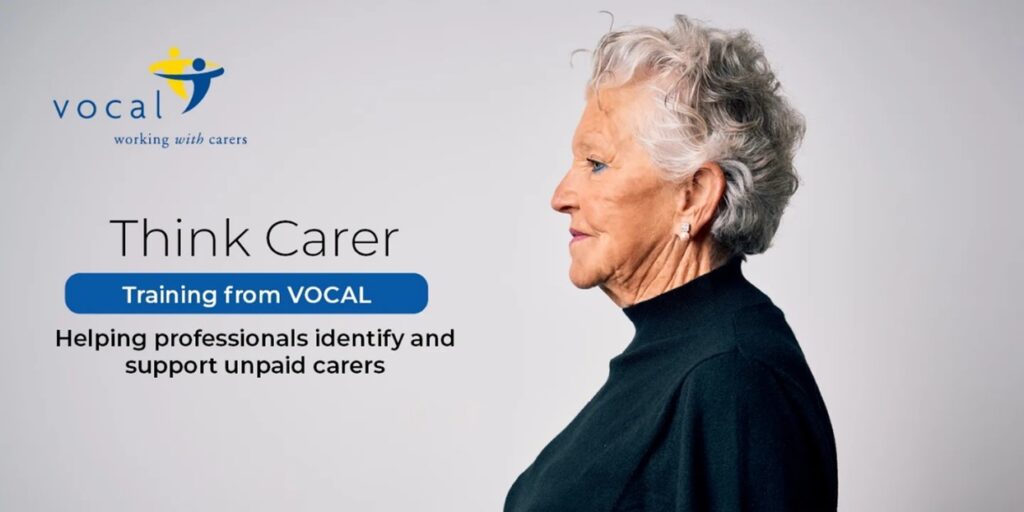
Referral to VOCAL
Please see our referral page for more details.













